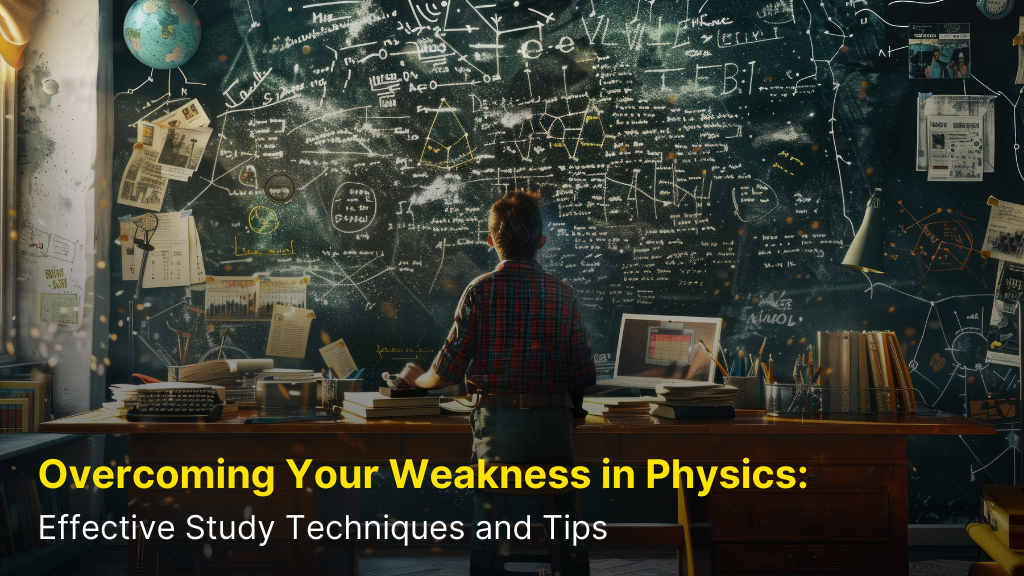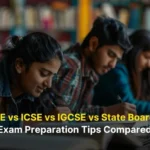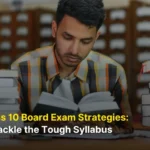Physics can be a challenging subject for many students. The complex concepts, mathematical calculations, and abstract principles often intimidate students, leading to weak performance and frustration. However, with the right study techniques and tips, anyone can overcome their weaknesses in physics and excel in this fascinating field. In this article, we will explore effective strategies for understanding and mastering physics, building a strong foundation, and overcoming physics anxiety.
Understanding the Challenges in Learning Physics
Before we dive into the study techniques, it’s important to understand the challenges that come with learning physics. Physics is a discipline that requires a deep understanding of fundamental principles and the ability to apply them to real-world problems. Many students struggle with physics due to the following factors:
One of the primary challenges in learning physics is the transition from simply memorizing facts to truly grasping the underlying concepts. Physics involves complex theories and principles that may not always align with our everyday experiences, making it crucial to develop a deep conceptual understanding. This shift in thinking can be particularly challenging for students who are accustomed to rote memorization in other subjects.
Identifying Your Weaknesses in Physics
One key step in overcoming weaknesses in physics is identifying the specific areas where you struggle. Whether it’s understanding concepts, solving mathematical problems, or applying theories to practical situations, self-awareness is crucial. Reflect on your performance in physics and pinpoint the specific topics or skills that give you the most trouble.
Furthermore, another common challenge in learning physics is the need for strong mathematical skills. Physics and mathematics are deeply intertwined, with equations and calculations serving as the language of the universe. Students who find themselves struggling in physics often discover that their difficulties stem from a lack of proficiency in the underlying mathematical concepts required to solve physics problems effectively.
Common Misconceptions About Physics
In addition to identifying your weaknesses, it’s important to address any misconceptions you may have about physics. Many students develop misconceptions due to misunderstandings or incomplete knowledge. Seek assistance from your teachers, classmates, or online resources to clarify any misconceptions you may have. This will pave the way for a clearer understanding and a stronger foundation in physics.
Moreover, another hurdle that students face in mastering physics is the application of theoretical knowledge to practical scenarios. While understanding concepts is essential, the ability to apply those concepts to real-world situations is equally important. This skill requires critical thinking, problem-solving abilities, and the capacity to adapt theoretical frameworks to diverse contexts, which can be daunting for many learners.

Building a Strong Foundation in Physics
A strong foundation is essential for success in physics. Without a solid understanding of basic concepts, it becomes increasingly challenging to grasp advanced topics. Here are some strategies to help you build a strong foundation:
Importance of Basic Concepts in Physics
Basic concepts form the building blocks of physics. Make sure you have a thorough understanding of fundamental principles such as Newton’s laws of motion, conservation of energy, and principles of electricity and magnetism. Take time to review these concepts and clarify any doubts you may have.
Strategies for Strengthening Your Physics Foundation
Strengthening your physics foundation requires consistent effort and practice. Here are some strategies to help you reinforce your understanding:
- Review your class notes and textbooks regularly. Revise the concepts covered in class to solidify your understanding.
- Work through example problems to apply the concepts learned. Practice is crucial for mastering physics.
- Seek additional resources like online tutorials, videos, or physics-related websites to supplement your learning.
- Participate in study groups or seek help from your teachers or peers when you encounter difficulties. Collaborative learning can enhance your understanding of physics.
Effective Study Techniques for Physics
Now that you have a strong foundation in physics, it’s time to explore effective study techniques that will help you maximize your learning potential.
Active Learning Techniques
Passive reading or listening is not enough to truly understand physics. Active learning techniques engage your mind and help you grasp concepts more effectively. Here are some active learning techniques you can incorporate into your study routine:
- Summarize complex concepts in your own words to ensure comprehension.
- Teach the material to someone else. Explaining concepts to others forces you to solidify your understanding.
- Create concept maps or diagrams to visualize the relationships between different physics principles.
- Engage in hands-on experiments or simulations to reinforce theory with practical application.
Utilizing Visual Aids in Physics Study
Physics is a visual science, and using visual aids can significantly enhance your understanding. Here are some ways you can incorporate visual aids into your study routine:
- Use interactive online simulations or virtual labs to visualize physics phenomena.
- Create mind maps or flowcharts to represent complex concepts and their interconnections.
- Utilize flashcards with diagrams or illustrations to memorize formulas or key principles.
- Watch educational videos or animations that explain physics concepts visually.
Need a FREE Counseling Session?
Book a Free 1 Hour Career Counseling Session with our Academic Experts to explore career options in Science.
The Role of Practice Problems in Physics Mastery
Practice problems are a crucial component of mastering physics. They help you apply theoretical knowledge, sharpen problem-solving skills, and build confidence. Here’s how you can use practice problems effectively:
- Start with basic problems and gradually increase difficulty as you gain proficiency.
- Break down complex problems into smaller, manageable steps.
- Review the solutions to problems that you struggled with and understand the underlying concepts.
- Solve problems from previous exams or textbooks to familiarize yourself with different question types.
Tips for Successful Physics Study
While effective study techniques are essential, a successful study routine involves more than just mastering the subject matter. Here are some additional tips to enhance your physics study experience:
Time Management in Physics Study
Physics requires dedicated time and effort. Effective time management can help you make the most of your study sessions. Here are some tips:
- Create a study schedule and allocate specific time slots for physics study.
- Break your study sessions into manageable chunks to maintain focus and prevent burnout.
- Prioritize challenging topics and allocate more time to areas where you need improvement.
- Take short breaks during study sessions to recharge your mind.
The Importance of Consistent Review
Consistent review is crucial for retaining knowledge and building long-term memory. Here’s how you can incorporate regular review into your study routine:
- Make weekly or monthly review sessions part of your study schedule.
- Review previous topics as you progress to reinforce understanding and connect concepts.
- Utilize flashcards or self-quizzing techniques to test your recall of key principles.
- Regularly revisit your class notes to refresh your memory.
Dealing with Complex Physics Problems
Complex physics problems can be daunting, but with the right approach, you can overcome them. Here are some strategies to tackle complex problems:
- Break down the problem into smaller parts and identify the underlying principles involved.
- Refer to solved examples or textbooks for similar problems to gain insight into the problem-solving process.
- Seek help from your teachers or peers when you get stuck. Collaboration can provide fresh perspectives and problem-solving strategies.
- Stay calm and patient. Sometimes, complex problems require time and multiple attempts to solve.

Overcoming Physics Anxiety
Physics anxiety is a common challenge among students. It can hinder learning and hinder performance. Here are some mindset shifts and stress management techniques to help you overcome physics anxiety:
Mindset Shifts for Physics Learning
Approaching physics with the right mindset can make a significant difference in your learning experience. Consider the following mindset shifts:
- Believe in your ability to learn and succeed in physics. Embrace a growth mindset, knowing that your effort and dedication will lead to improvement.
- View mistakes as learning opportunities. Embrace the process of trial and error to deepen your understanding.
- Focus on progress rather than perfection. Celebrate small victories along the way.
- Stay curious and ask questions. Challenge yourself to explore the why and how behind physics principles.
Stress Management Techniques for Physics Students
Stress can hinder your ability to learn and perform well in physics. Incorporate stress management techniques into your study routine to enhance your well-being:
- Practice relaxation techniques such as deep breathing, meditation, or yoga to reduce stress and increase focus.
- Engage in physical exercise to boost endorphins and relieve stress.
- Take breaks to engage in activities you enjoy, such as listening to music or going for a walk.
- Seek support from friends, family, or mentors when you feel overwhelmed.
By implementing these effective study techniques, building a strong foundation, and managing physics anxiety, you can overcome your weaknesses in physics and achieve success. Remember that persistence and consistent effort are key. Embrace the challenge and enjoy the process of mastering this fascinating subject.






